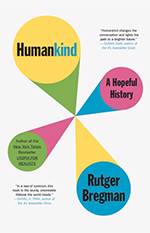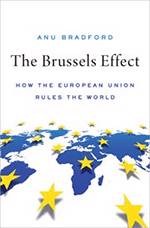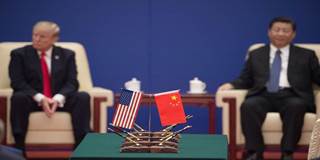Javier Solana
Says More…
This week, PS talks with Javier Solana, a former EU High Representative for Foreign Affairs and Security Policy, NATO Secretary-General, and Spanish Foreign Minister, who is now President of the EsadeGeo – Center for Global Economy and Geopolitics and a distinguished fellow at the Brookings Institution.
Project Syndicate: You and Óscar Fernández recently warned against making a Sino-American cold war into a self-fulfilling prophecy, arguing that while China “will seek to shape the global landscape according to its interests,” it will “not attempt to reshape other countries in its own image,” and has few allies. Yet, as you acknowledge, China’s increasing assertiveness in the South China Sea and Hong Kong does not augur well for de-escalation. Now, Chinese aggression is also fueling rising tensions with India. Is China approaching a tipping point, beyond which peaceful de-escalation – whether with the United States or its regional neighbors – becomes extremely difficult, if not impossible?
JS: Not necessarily. There is no question that China feels increasingly mighty. It has no intention – or, in its view, incentive – to accept foreign intervention in what it considers to be its domestic affairs, nor to renounce its territorial claims. But there are excellent reasons for China to seek to strengthen relations with its neighbors and improve its global standing, especially at a time when America’s leadership position is diminishing.
Both China and the US would serve their interests well by taking a big-picture view – one that entails de-escalation and cooperation. Regrettably, at the moment, they seem instead to be feeding into each other’s worst impulses. But should Joe Biden, President Donald Trump’s presumptive Democratic challenger, win the upcoming US presidential election in November, we could at least expect a shift in tone.
Solana recommends
We ask all our Say More contributors to tell our readers about a few books that have impressed them recently. Here are Solana's picks:
-

Humankind: A Hopeful History
by Rutger Bregman
During the pandemic, many people have succumbed to gloomy views of human nature. But Bregman argues that expecting the best of our fellow humans and ourselves is not only more productive, but also more realistic. Cooperation is the rule, not the exception, in human history – even in the direst of circumstances.
-

The Brussels Effect: How the European Union Rules the World
by Anu Bradford
Bradford provides an insightful reminder of just how unintentionally powerful the EU has become in the last three decades. A defense or fiscal union may still be a long way off (though we are getting closer). But, in a growing number of crucial areas, from data protection to food standards, governments and businesses worldwide increasingly look to Europe for guidance.
-

The Europeans: Three Lives and the Making of a Cosmopolitan Culture
by Orlando Figes
This is a vivid account of the emergence of pan-Europeanism in the nineteenth century, as illustrated by the intertwined lives of the French opera singer Pauline Viardot, her erudite husband Louis, and the Russian writer Ivan Turgenev. This masterful book is a celebration of Europe’s virtually limitless potential in all domains, but also serves as a reminder that nothing can be taken for granted.
From the PS Archive
From 2019
In this PS On Point long read, Solana considers prospects for a new diplomatic rapprochement with Iran. Read more.
From 2018
Solana points out that Europe’s efforts to bolster its own security are often frustrated by the US itself. Read more.
Around the web
In a 2016 interview, Solana considers the future of the transatlantic relationship. Watch the video.
